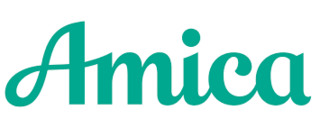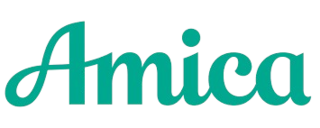How Condos Are Insured — and How to Save on Your Policy

Condominiums — more commonly referred to simply as condos — have appeal if you want to enjoy the perks of homeownership without the responsibilities of major maintenance tasks like repairing a roof.
However, insuring a condo is unique — and complicated. Before purchasing one of these homes, it's important to understand how condos are insured and what coverage you may need to buy.
Forms of condo insurance
Most condo owners will have two forms of insurance: a master policy and an individual policy.
Master Policy
The condo association’s master policy generally covers shared or common areas, such as the building's hallways, elevators, walkways, and community pool, along with the building's exterior. The policy is paid for from your monthly or annual membership dues or maintenance fees.
The specifics of what's covered can vary by policy, so it's important to carefully read the master policy so you understand what's covered (and what's not).
For example, some condo associations will insure individual units, including their standard fixtures like basic bathroom sinks and showers. In others, the association’s insurance only covers the bare walls and structure, and the condo owner would be responsible for insurance to cover cabinets, appliances, plumbing and other features.
Individual Policy
The master policy mostly insures the overall building structure and common areas; it doesn't provide protection for what's inside your condo. Consequently, you'll likely need to purchase a separate individual condo insurance policy.
Individual condo insurance policies, often referred to as HO6 policies, provide coverage for your personal property, personal liability and some interior structures or fixtures.
It's your responsibility to secure HO6 coverage, and you'll pay the premiums separately from your master policy dues.
What does condo insurance cover?
A standard individual condo insurance policy typically includes the following coverages:
- Personal property: Coverage for loss or damage to personal property that is damaged or stolen in covered incidents. For example, if your condo suffers fire damage, personal property insurance would pay to replace your furniture, electronics, clothing and other items.
- Personal liability: If someone is injured when visiting your condo, such as a delivery person or guest, personal liability insurance could pay for their medical expenses. Also, if you are sued, the policy can cover your legal expenses.
- Loss of use: Loss of use coverage is for the cost of temporary housing and living expenses if your home is damaged and it's not habitable.
- Building: Coverage for the building fixtures not covered under a master policy, such as countertops, cabinets, fixtures and flooring.
Additional forms of condo insurance
Beyond the standard coverages available with an individual condo policy, you may need one or more of the following add-ons:
- Loss assessment coverage: Occasionally, your condo association may impose a special assessment for added expenses that are out of the ordinary. For example, if the damages after a storm exceed the master policy’s limits or if the deductible is higher than the repair bill, the association may charge each condo owner a fee. While your personal policy may reimburse part of such fees, you can purchase additional coverage that covers more of any special assessment costs.
- Water backup coverage: Water backup insurance pays for repairs related to water damage caused by blocked drains or sump pump failures, which are normally excluded from basic condo insurance policies.
- Building code coverage can help you with the cost of bringing your unit up to current building codes if repairs are required after a covered loss.
How to find affordable condo insurance
As a condo owner, you'll have two insurance-related expenses. The first is the portion of your membership association dues that go toward the master policy. And you'll also have the monthly premium for your individual policy. On average, individual condo insurance policies cost about $500 per year.
There are several ways you can save on your individual condo insurance policy:
- Ask about discounts: Many insurers offer discount programs for condo insurance. Common discounts include multi-policy discounts, claims-free discounts, and protective or security device discounts.
- Change your deductible: Raising your deductible, or how much you have to pay out of pocket before your insurer will help with the bill, will cause your monthly or annual premiums to decrease.
- Shop around: Rates, coverage options, and discount programs vary by insurance company. It's a good idea to shop around and request quotes from several major insurers in your area to find the best coverage at the most affordable price.




